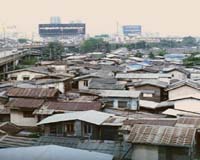| . |  |
. |
Beijing (AFP) Jan 26, 2011 China will roll out a resources tax across the country over the next five years as Beijing tries to boost local government income and reduce reliance on land sales, state media said Wednesday. The government will also overhaul levies on high-income earners and push forward reforms of real estate taxes, the China Daily said, citing finance minister Xie Xuren. Further details were not provided. The resources tax, which was introduced in the far-western Xinjiang region in June to help save energy, cut emissions and boost prosperity, will be extended to the rest of the country by 2015, the report said. Energy producers in Xinjiang have been ordered to pay a five-percent levy on the sales value of crude oil and natural gas. The tax is expected to boost government coffers by billions of yuan every year. The resources tax is part of reforms aimed at giving local governments more revenue so they are less reliant on land sales to developers for funding, which have hampered Beijing's efforts to cool the real estate market. A tax-sharing system introduced in 1994 gave the central government a bigger slice of the country's revenues, reducing the share kept by local authorities. Local governments, which are not allowed to borrow directly from banks, have relied on financing vehicles and land sales to make up for the shortfall in revenue so they can fund infrastructure and other projects. China's unprecedented urbanisation has seen millions of hectares of arable land claimed by local governments seeking to cash in on the nation's property boom, sometimes forcing people out of their homes without proper compensation. Some property developers have been hoarding the land to drive up prices -- a practice Beijing has vowed to stamp out. Top leaders, worried that soaring house prices could trigger social unrest, have introduced a range of measures to cool the market. These include increasing the size of down payments, limiting the number of apartments a family can buy and ordering local officials to fine property developers who have left land vacant for more than one year. Beijing is also worried about a potential explosion in bad debts if local government financing vehicles -- which enable local officials to get around the ban on borrowing directly from banks -- default on their loans. A government probe last year found that around 26 percent of the 7.66 trillion yuan ($1.16 trillion) lent to local authority finance vehicles by the end of June were in danger of going bad, state media said.
earlier related report State-owned banks had handed out 1.2 trillion yuan ($182.3 billion) in new loans by January 24, the China Business News reported -- more than twice the amount issued in December and equal to 15 percent of last year's total. The surge in new loans this month suggests banks are defying government efforts to stem a flood of liquidity into the economy, which has been blamed for fanning inflation and pushing up property prices. Beijing has increased the amount of money banks must keep in reserve seven times in the past 12 months, and raised interest rates twice since October. The country's one-year lending and deposit rates stand at 5.81 percent and 2.75 percent respectively. To reduce the volume of new loans, bank head offices have issued instructions to their branches to hike lending rates by 10-45 percent to "ensure the amount of new loans does not exceed the quota", the China Securities Journal said, citing an unnamed official at a large bank. Chinese banks are allowed to extend between 7.2 trillion yuan and 7.5 trillion yuan in new loans this year, the newspaper reported previously. New lending reached 7.95 trillion yuan in 2010, exceeding the government's full-year target of 7.5 trillion yuan but less than the previous year's explosion, which saw new loans nearly double to 9.6 trillion yuan.
Share This Article With Planet Earth
Related Links The Economy
 Jobs rise but poverty a constant threat
Jobs rise but poverty a constant threatSantiago, Chile (UPI) Jan 20, 2011 Recovery in Latin America and the Caribbean created new jobs in 2010 but left many of the newly employed worse off because of quality of employment in the post-crisis conditions, analysis of U.N. data indicated. The recovery in the region was patchy, with some of the resource-rich nations failing to perform as expected and falling behind others, the most notable example being Venezuela, ... read more |
|
| The content herein, unless otherwise known to be public domain, are Copyright 1995-2010 - SpaceDaily. AFP and UPI Wire Stories are copyright Agence France-Presse and United Press International. ESA Portal Reports are copyright European Space Agency. All NASA sourced material is public domain. Additional copyrights may apply in whole or part to other bona fide parties. Advertising does not imply endorsement,agreement or approval of any opinions, statements or information provided by SpaceDaily on any Web page published or hosted by SpaceDaily. Privacy Statement |